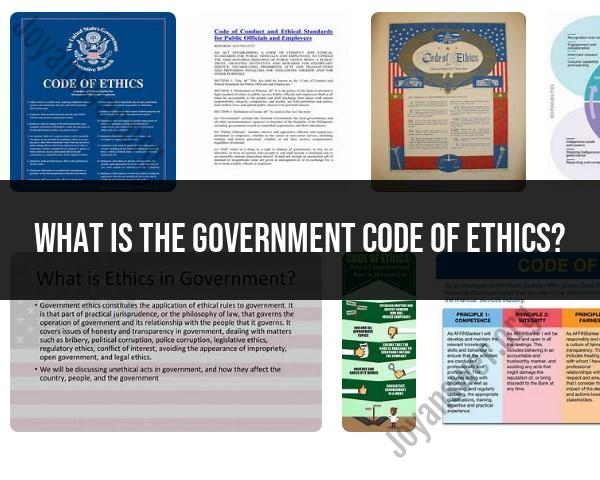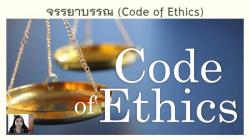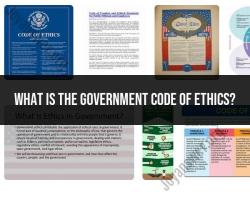What is the Government Code of ethics?
The term "Government Code of Ethics" may refer to different things depending on the context, as different countries, states, or organizations may have their own codes of ethics for government officials and employees. In general, a Government Code of Ethics outlines the principles and standards of conduct that individuals working in government roles are expected to adhere to. This is to ensure transparency, integrity, and the responsible use of public resources.
For example, in the United States, there is no single, comprehensive "Government Code of Ethics" that applies universally at the federal level. However, there are various ethical guidelines and laws that govern the behavior of government officials. These may include:
Office of Government Ethics (OGE):
- The OGE provides guidance and oversight for the executive branch of the U.S. federal government. It offers standards of ethical conduct for employees, financial disclosure requirements, and advice on ethical matters.
Code of Federal Regulations (CFR):
- The CFR includes regulations related to ethics for federal employees. Title 5 of the CFR, Part 2635, outlines the standards of ethical conduct for executive branch employees.
State and Local Codes:
- Individual states and local governments often have their own codes of ethics that apply to government officials at those levels. These codes may address issues such as conflicts of interest, gift acceptance, and post-employment restrictions.
International Organizations:
- International organizations and bodies may also have their own codes of ethics for government officials. For example, the United Nations and other intergovernmental organizations may have guidelines to ensure ethical behavior among their employees.
Specific Agencies:
- Some government agencies may have specific codes of ethics tailored to their unique responsibilities. These codes often emphasize the importance of impartiality, accountability, and the responsible use of government resources.
It's important to note that the specifics of a Government Code of Ethics can vary, and individuals working in government roles are expected to be familiar with and adhere to the relevant codes and guidelines applicable to their jurisdiction and agency. Violations of these ethical standards can result in disciplinary action, legal consequences, or both, depending on the severity of the breach.
What does the Government Code of Ethics entail?
The Government Code of Ethics refers to a set of rules and principles that govern the conduct of government officials and employees. Its purpose is to promote integrity, honesty, impartiality, accountability, and public trust in government institutions.
Key pillars of the Government Code of Ethics:
- Conflict of Interest: This prohibits officials from taking actions that could benefit themselves or their families financially or personally at the expense of the public interest.
- Gifts and Gratuities: Officials are generally prohibited from accepting gifts or gratuities that could influence their decision-making.
- Disclosure of Financial Interests: Officials are often required to disclose their financial interests and potential conflicts of interest publicly.
- Use of Government Property: Officials must use government property and resources responsibly and only for authorized purposes.
- Post-Government Employment Restrictions: There are often restrictions on the types of private sector jobs that former government officials can take to prevent conflicts of interest or insider trading.
The specific details of the Government Code of Ethics vary depending on the country, state, or local jurisdiction. Some common sources of these codes include:
- National constitutions: Many countries have constitutional provisions related to ethical conduct of government officials.
- Legislation: Specific laws can be enacted to create and enforce ethical codes for public servants.
- Executive orders: Presidents or other heads of government may issue executive orders to establish ethical standards for their administrations.
- Agency regulations: Individual government agencies may have their own ethical rules and regulations for their employees.
Examples of ethical violations:
- A government official using their position to secure a job for a family member.
- A politician accepting campaign contributions from a company that they are supposed to regulate.
- A government employee leaking confidential information to a private sector company.
Compliance with the Government Code of Ethics is essential for maintaining public trust in government institutions. Violations of the code can result in disciplinary action, including dismissal from employment, and even criminal charges in some cases.
Remember, these are just general points. For specific information about the Government Code of Ethics in your area, you should consult the relevant laws and regulations.
I hope this helps! Let me know if you have any other questions about the Government Code of Ethics.



